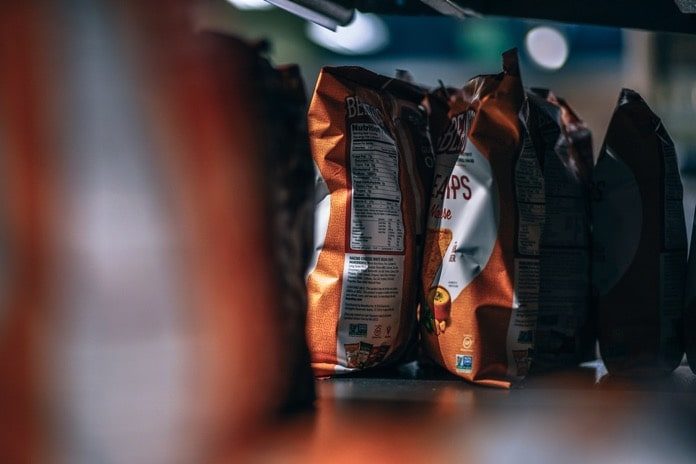Researchers analyzed the relationship between supermarkets’ checkout food policies and the sales of unhealthy snacks.
It is not uncommon to stand in line at the supermarket and decide to buy a candy bar on impulse. A recent survey determined that 70.5% of impulse buys are food, much of which are unhealthy snacks. Supermarkets have a great deal of influence on customers’ purchases and dedicate a portion of their budgets to the most profitable product placement. Many supermarkets in the UK have voluntarily pledged to stock healthier foods in checkout lines, and they have created checkout food policies to support these pledges.
In a recent United Kingdom study published in PLoS Medicine, researchers analyzed the relationship between supermarkets’ checkout food policies and the sales of unhealthy snacks. To do so, they studied data from a UK commercial household purchase panel. This data was used to determine if supermarkets with checkout food policies sold fewer unhealthy snacks than those that did not have checkout food policies. Researchers also examined whether there was a relationship between checkout food policies and the number of snacks purchased and eaten on-the-go.
Researchers included nine supermarkets that represented more than 90% of the UK grocery market. Six of these supermarkets changed their checkout food policy between January 2014 and July 2016. Of the remaining three, two implemented checkout food policies before January 2013, and the other had no policy at all.
New checkout policies replaced unhealthy snacks with healthier options
Using previous survey data to determine supermarkets’ checkout food policy, the researchers categorized them into three groups: those with clear and consistent policies, vague or inconsistent policies, and no policy. Clear and consistent checkout food policies clearly stated that sweets and chocolates were to be replaced with healthier options at all checkouts. Vague or inconsistent policies limited the number of unhealthy snacks to a certain number per checkout or did not give replacement product guidance. Unhealthy snacks were foods such as sweets or candy, chocolate, and potato chips.
One part of the study focused on foods purchased and brought home. It used data gathered since 2013 from a commercial, continuously refreshed consumer panel provided by 30,000 UK households. The take-home data represented the total UK market of 27,385,050 households. Researchers compared the purchases of common checkout foods for 12 months before checkout food policies were put in place to the purchases made for 12 months afterwards.
Decreased purchases of unhealthy snacks
Four weeks after implementation of the checkout food policy, the number of unhealthy snacks purchased decreased by 17.3%. One year later, it was 15.5% lower than if the checkout food policy had not been put in place.
The other part of the study focused on unhealthy snacks eaten on-the-go. It used data taken in 2016-2017 from a commercial consumer panel provided by 7,500 individuals. The out-of-home data represented 50,398,000 UK individuals, aged 13-79 years. Researchers compared the type of checkout food policy with the purchase of foods commonly eaten on-the-go.
There was a 79.5% reduction in the number of unhealthy snacks bought per year when the supermarket had a clear and consistent checkout food policy. When the supermarket had a vague or inconsistent checkout food policy there was a 75.3% reduction in the number of unhealthy snacks bought during that period.
Product placements do affect customer decisions
Because the study represented only UK households, international differences in retail may mean different results in different countries. Other study weaknesses include selective movement of shoppers due to check out food policies, and where in-store products were selected.
It is clear that product placement decisions at the supermarket affect the decisions made by customers. Additional research into the effect of supermarket-led interventions and motivations will provide a better understanding of how the public’s health could be improved. Check out food policies may provide a way to decrease unhealthy snacks and increase healthier food options.
Written by Rebecca K. Blankenship B.Sc.
References:
- Ejlerskov K, Sharp S, Stead M, Adamson A, White M, Adams J. Supermarket policies on less-healthy food at checkouts: Natural experimental evaluation using interrupted time series analyses of purchases. PLoS Med. 2018;15(12):e1002712. doi:10.1371/journal.pmed.1002712
- O’Brien S. Consumers waste $5,400 a year on impulse buys. CNBC. https://www.cnbc.com/2018/02/23/consumers-cough-up-5400-a-year-on-impulse-purchases.html. Published 2018. Accessed December 28, 2018.



